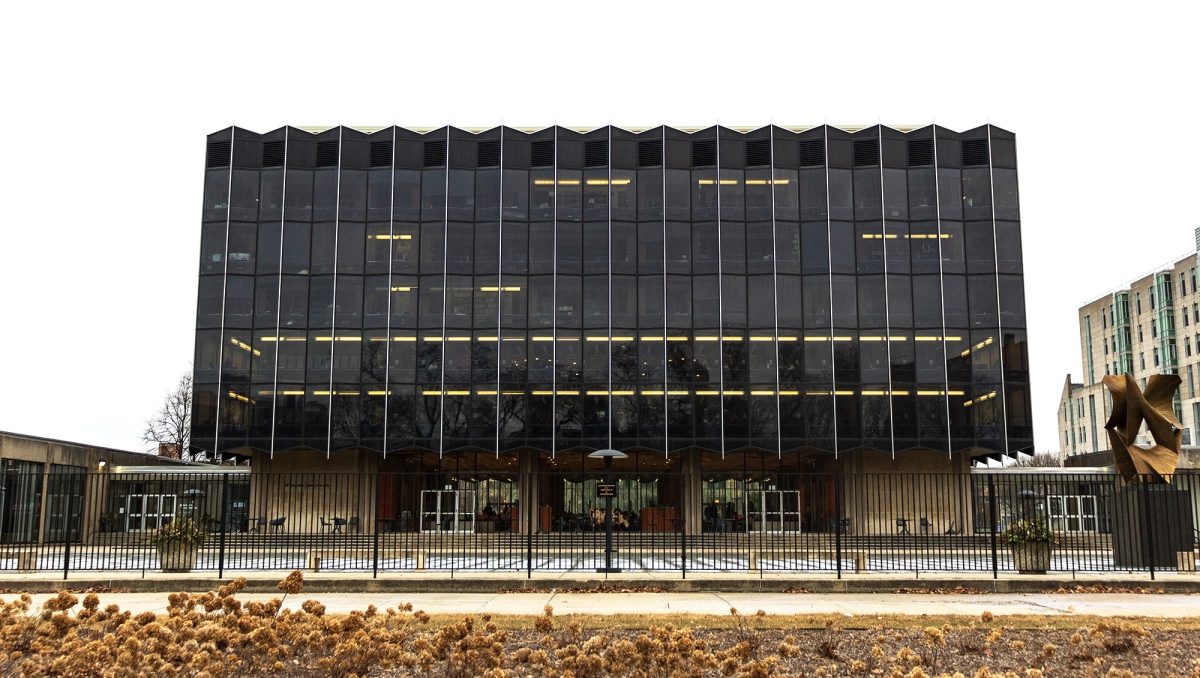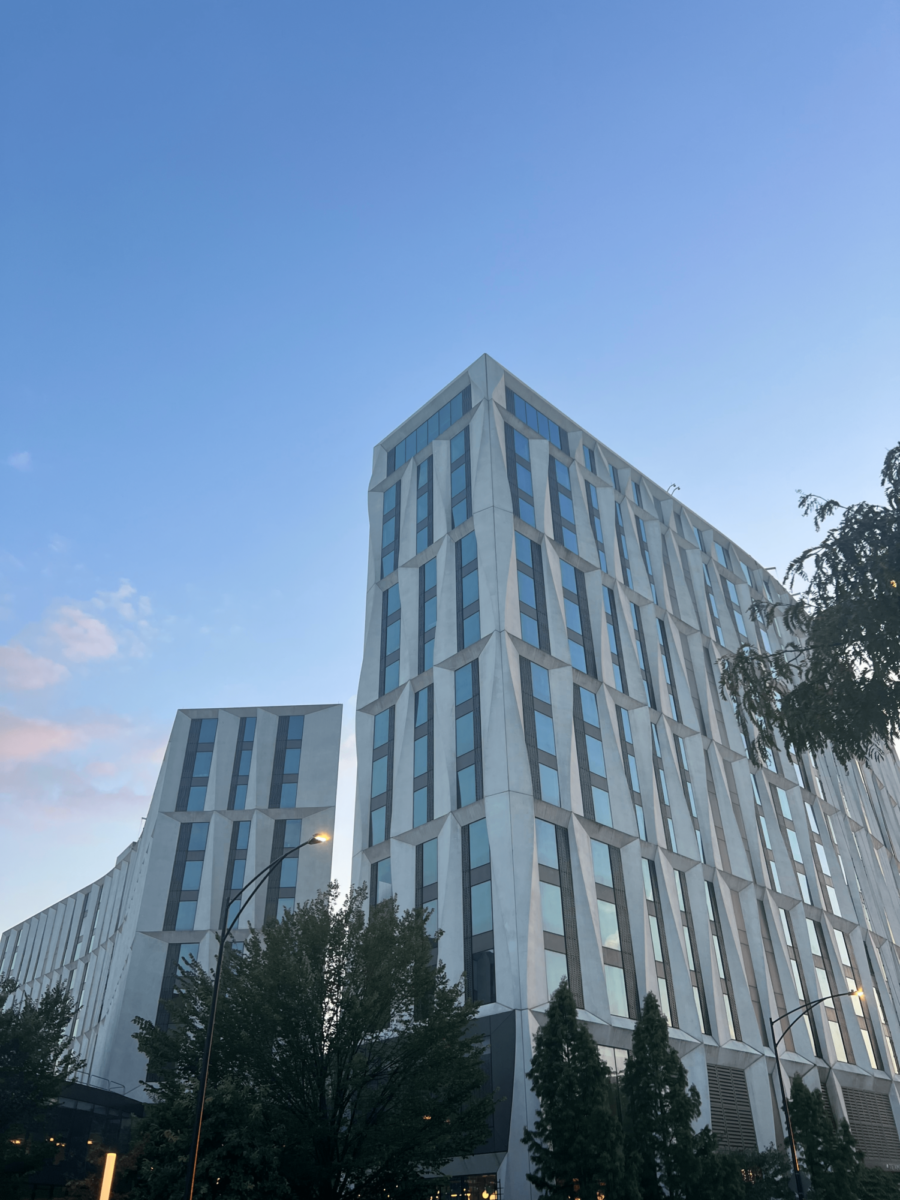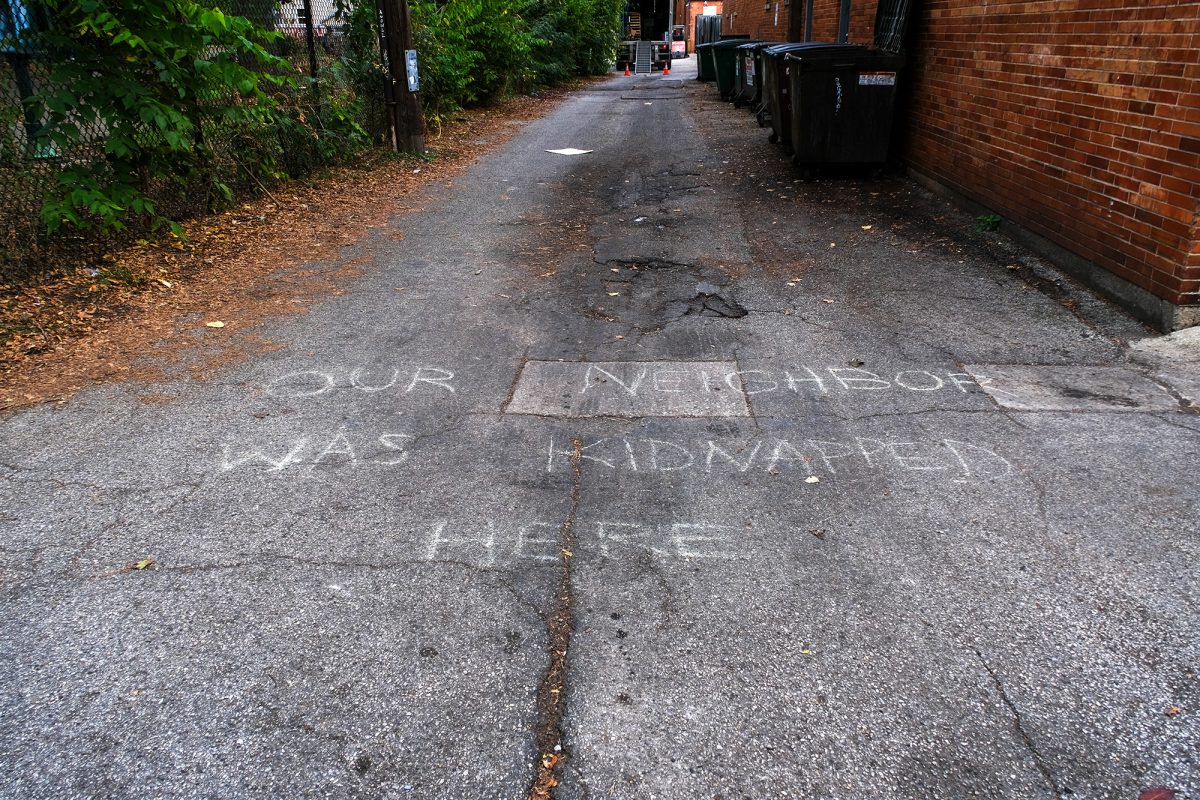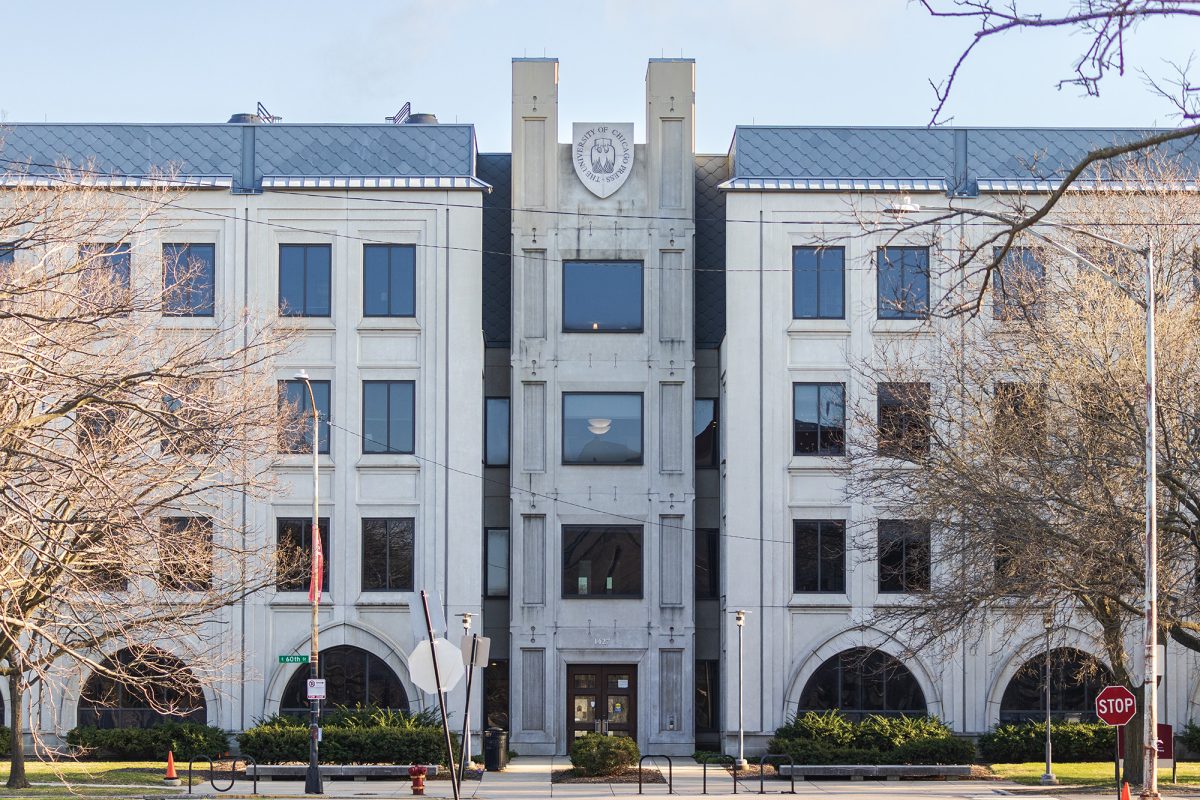John Eastman (J.D. ’95), a leading opponent of birthright citizenship and a former Donald Trump attorney known for his attempts to help overturn the 2020 election results, spoke on February 17 at the law school in a small roundtable discussion closed to the press. Members of the Forum for Free Inquiry and Expression student advisory board organized the event.
In response, several law student groups in partnership with the Forum for Free Inquiry and Expression organized an event entitled “A Conversation About the 14th Amendment and Birthright Citizenship” with Professor Nicole Hallett, an expert in immigration law and policy, and Professor Genevieve Lakier, a constitutional law scholar.
“Because we believe that there is nothing to learn about the Constitution from a man who faces disbarment for attempting to usurp it, we have organized responsive programming on the same day, at the same time as his appearance,” reads an email from the University of Chicago American Constitution Society (ACS) promoting the event to law school students.
Eastman lost his law license after a California judge ruled that he “had exhibited gross negligence by making false statements about the 2020 election” and promoting a “wild theory” that then–Vice President Mike Pence could declare Trump the victor. He has been charged with conspiracy and other counts in election interference cases in Georgia and Arizona.
“There is much to lose from having him at our school,” the ACS email continued, calling Eastman a “bad faith political activist.”
“If you have this guy that’s so obviously willing to lie and make really frivolous arguments on one thing, why wouldn’t he be doing the same for this other issue?” said Vicente Alayo-Matos, the law school co-chair of the inaugural Forum for Free Inquiry and Expression student advisory board.
According to the Forum for Free Inquiry and Expression website, student board chairs work to craft programming in which “members of the University of Chicago community can expand their thinking and views on critical issues.”
After Alayo-Matos’s co-chair proposed inviting Eastman to speak, Alayo-Matos said he then focused on generating dialogue through the event.
“I still don’t think he’s the best person at all to talk about birthright citizenship, but the Forum is going to bring speakers who any student asks for,” Alayo-Matos said. He remains doubtful of Eastman’s theories but said from what he has seen “[opposing birthright citizenship] is an idea that’s now taking hold in a lot of people.”
“I’m seeing not just among my family, but people that I know that are seriously discussing this idea of [ending birthright citizenship]. Whether or not it’s legal is kind of beside the point,” Alayo-Matos continued.
Eastman and other anti-birthright citizenship scholars “have been contending for years—decades, really—that the 14th Amendment’s Citizenship Clause does not provide automatic citizenship for everyone born on U.S. soil,” he wrote last month in an essay, “Birthright Citizenship: Game On!” His argument echoes Trump’s recent executive order, which states that “the Fourteenth Amendment has never been interpreted to extend citizenship universally to everyone born within the United States.”
The 14th Amendment of the Constitution, ratified in 1868, reads: “All persons born or naturalized in the United States, and subject to the jurisdiction thereof, are citizens of the United States and of the state wherein they reside.”
Eastman believes the “right” interpretation of the jurisdiction language should lead to exceptions. He argues that U.S.-born children of immigrants or individuals on temporary visas should not be awarded citizenship because their parents are not subject to the “complete” jurisdiction of the federal government.
Earlier this month, a federal judge in Maryland indefinitely blocked Trump’s executive order, and the directive faces six lawsuits from 22 Democratic-led states and more than half a dozen civil rights groups, according to The Washington Post.
When ACS learned of Eastman’s visit, they contacted Alayo-Matos, which resulted in the response programming sponsored by the ACS, the Latinx Law Student Association, and the Human Rights Law Society, in partnership with the Forum for Free Inquiry and Expression student advisory board.
Alayo-Matos also revised the structure so that the roundtable with Eastman was the second in a two-part series. Professor Michael Ramsey, an originalist, spoke in favor of birthright citizenship earlier this month in an event entitled “What is the Original Meaning of the Birthright Citizenship Clause? Part 1.”
Student advisory board co-president and joint Harris-Booth master’s student Syed Ahmad, one of the students in charge of approving events, told the Maroon the Forum isn’t selective about choosing speakers. “As long as we can feel that it’s an event that meets the mission, then we’ll approve it,” he said.
Forum Programs Director Talla Mountjoy, who coordinates with students to approve and structure events, confirmed that the student board has “never said no to an event.” She described her role as guiding students in achieving the Forum’s mission of fostering free inquiry through the events they propose.
Forum Faculty Director Tom Ginsburg, who said he was not involved in approving the event, called Eastman’s views “contestable” in an interview with the Maroon.
“It’s the University of Chicago, so we don’t disinvite people, but we do encourage people to come and ask tough questions,” Ginsburg said.















James Walacel / Feb 24, 2025 at 4:33 pm
Judge Posner wrote this in 2010, long before anyone thought Trump would be President
“We should not be encouraging foreigners to come to the United States solely to enable them to confer U.S. citizenship on their future children. That abuse provides an argument for abolishing birthright citizenship. A constitutional amendment may be required to change the rule, though maybe not, see Peter H. Schuck & Rogers M. Smith, Citizenship Without Consent: Illegal Aliens in the American Polity 116–17 (1985); Dan Stein & John Bauer, “Interpreting the 14th Amendment: Automatic Citizenship for Children of Illegal Immigrants,” 7 Stanford L. & Policy Rev. 127, 130 (1996), since the purpose of the rule was to grant citizenship to the recently freed slaves and the exception for children of foreign diplomats and heads of state shows that Congress does not read the citizenship clause of the Fourteenth Amendment literally. If birthright citizenship is not commanded by the Constitution, it can be eliminated by amending the statutory provision that I mentioned.
Retired Rocket Scientist / Feb 21, 2025 at 2:46 pm
It’s sad to see that a UChicago graduate threw his life away in this manner just because he was mesmerized by someone.
That said, free speech is alive and well at the University of Chicago, and I hope people attend to hear what mental gymnastics this guy is going to go through to twist the plain meaning and English common law history of the term “natural-born citizen” to come to a conclusion that obviously doesn’t hold up in court.
It’s not the first time he has done so and it probably won’t be the last.
If UC students learn nothing else from him, I hope they at least learn how to step out of themselves and look at their views objectively before trying to sell them to others.
Bob Michaelson / Feb 20, 2025 at 6:37 pm
Referring to Eastman as a “scholar” is as inane as saying that the FOTUS (Felon of the United States) is a “very stable genius.”